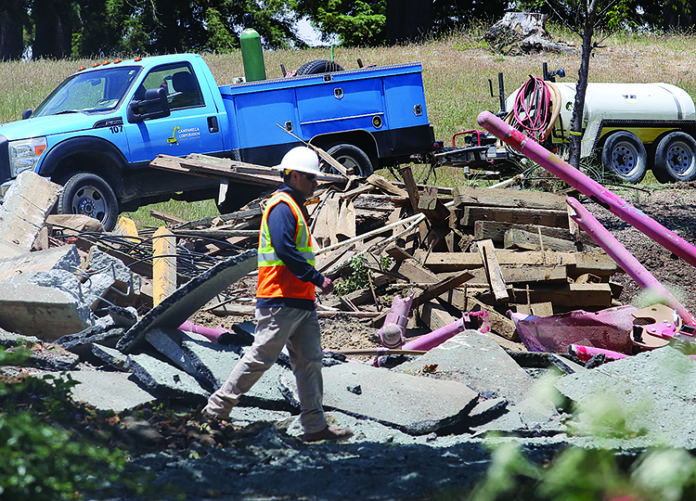
A proposed law that would have retroactively invalidated voter-approved tax measures throughout the state was removed from the November ballot by the California Supreme Court Thursday, a move that came as a relief to jurisdictions that had already budgeted the revenue.
The Taxpayer Protection and Government Accountability Act would have made it exponentially more difficult to pass tax measures by requiring a two-thirds supermajority vote.
But the initiative also went a step further by retroactively applying the rule to Jan. 1, 2022. That would have meant that Watsonville’s Measure R—a half-cent sales tax passed by more than 64% of Watsonville voters in 2022 to fund community services such as parks—would have been nullified.
That would have taken away a large financial source for the project upon which the city was counting to fund the ongoing Ramsay Park Renaissance Project, among other things.
In prepartion for that law, the Watsonville City Council in March voted to self-fund a portion of the $15 million that was still needed for the project through November, including a $5 million internal loan that would have cost the city $625,000 annually.
Watsonville City Manager Tamara Vides said the ruling is good news for both Watsonville and for cities around the state.
“Measure R is now safe from being repealed, and will continue to be put to good use in our community, increasing our investment in street, parks and library services,” Vides said. “The decision made by local voters stays in place and our community will be better and thrive with the revenues generated by this measure.”
The law would have also invalidated Measure K, which was approved by more than 54% of voters in March, and imposes a half-cent sales tax in the unincorporated parts of the county to fund essential services.
In its opinion, the court stated that the changes would, “substantially overhaul how local governments go about ensuring that everyday services are properly provided.”
“In sum, the TPA would affect all local revenue measures—big or small, essential or nonessential—to an extent that leaves no aspect of government untouched,” the opinion said.
Jonathan Underland, a spokesperson for the No on the Taxpayer Deception Act campaign, called the proposed law an “illegal revision to the constitution funded by a handful of wealthy real-estate developers and landlords desperate to avoid paying their fair share.”
“The Supreme Court’s decision to take this dangerous initiative off the ballot avoids a host of catastrophic impacts, protecting billions of dollars for schools, access to reproductive healthcare, gun safety laws that keep students safe in classrooms, and paid family leave,” Underland stated in a press release.
The measure was funded by the California Business Roundtable, which describes itself as a “non-partisan organization comprised of the senior executive leadership of the major employers throughout the state.”
In a press release, that group, along with the California Business Properties Association, called the ruling, “the greatest threat to democracy California has faced in recent memory.”
“Gov. Newsom has effectively erased the voice of 1.43 million voters who signed the petition to qualify the Taxpayer Protection Act for the November ballot,” the press release says. “Most importantly, the governor has cynically terminated Californians’ rights to engage in direct democracy despite his many claims that he is a defender of individual rights and democracy.”
The group added that it will “continue to explore our legal options and fight for the people’s right to hold their government accountable through direct democracy.”












